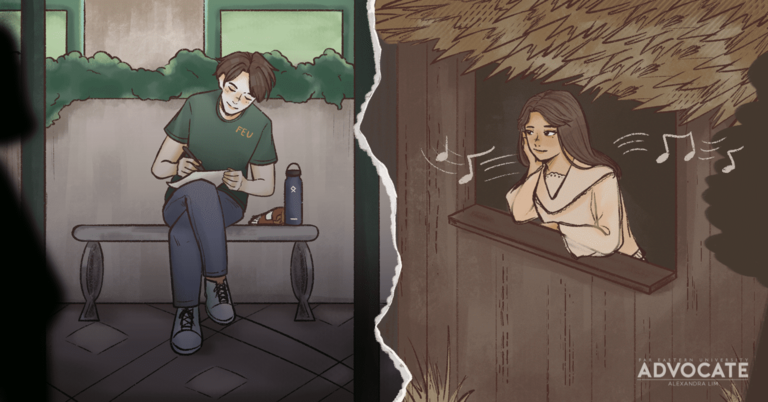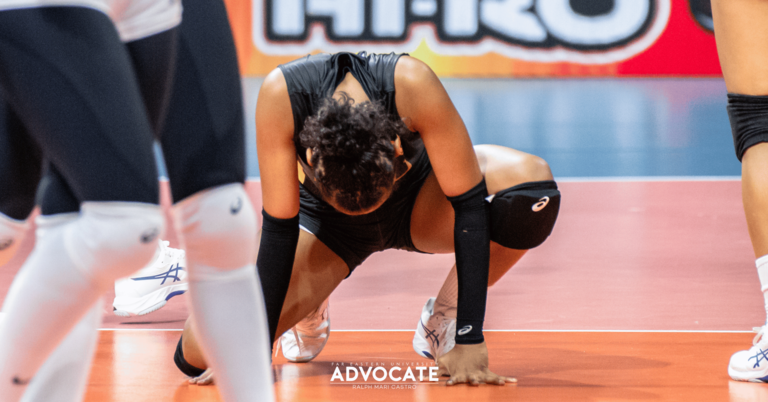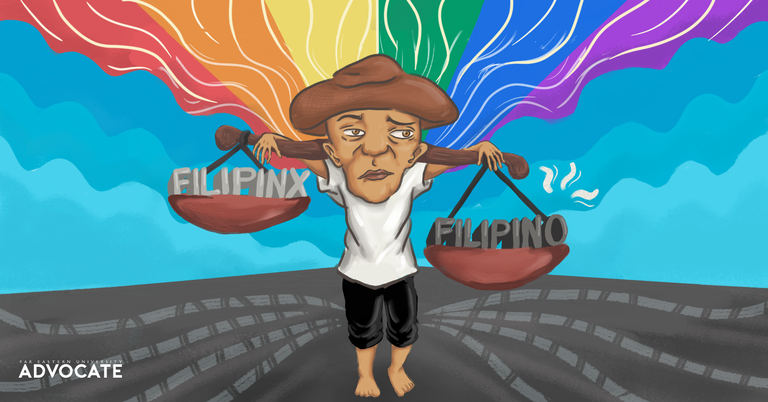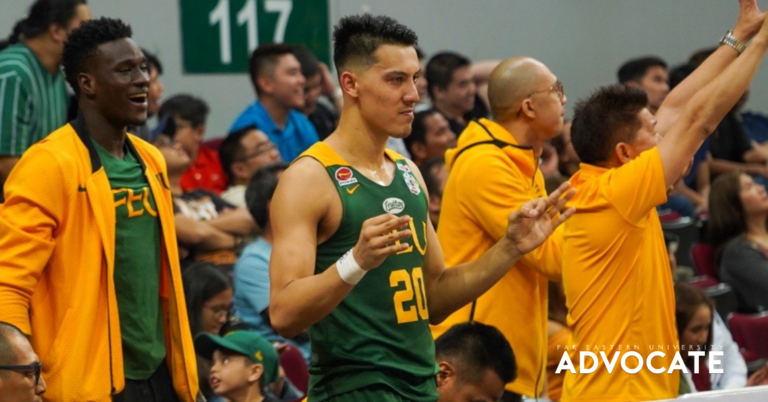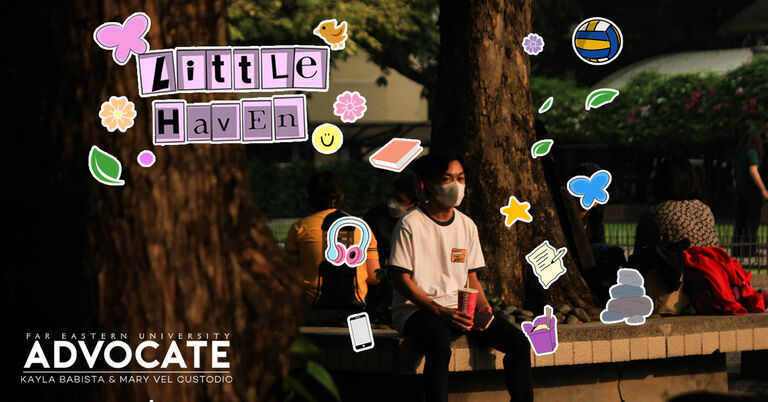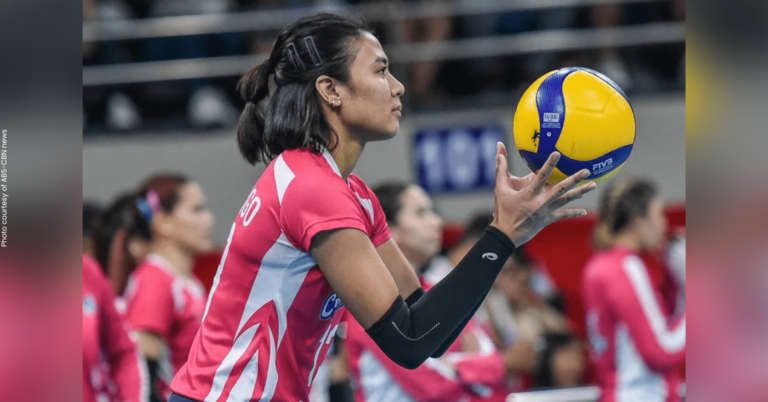
FEU programs earn AUN-QA certification
- December 07, 2021 05:58
FEU Advocate
April 20, 2025 20:45

Summer Rain
By Renee Marfiga, Senior Copyreader
The senatorial elections are just around the corner, and assembling a 12-person lineup is more or less a challenge. While trapos continue to dominate the surveys, many still hope for real change and continuously ruminate which candidates can prioritize the Filipino people’s best interests, including the LGBTQIA+ community.
Last April 8, I was on cloud nine the entire morning because of FEU SAGA’s Piyu Pride Fest. Marching around the campus, celebrating our identities, shouting the infamous ‘Makibeki! Huwag mashokot!’—the blistering heat was nothing compared to that feeling of being one with my brothers and sisters. Together with other queer Tamaraws, we waved our rainbow flags and raised our placards proudly and wholeheartedly.
So imagine my dismay when I came home to news that former commissioner of Commission Audit Heidi Mendoza, one of my potential senatorial bets, posted a video on her page where she said no to same-sex marriage. Again.
To be exact, Mendoza explained that while everyone has the right to love, the true kind of love respects the institution. The implication that we can only enjoy limited freedom under this state is just outright offensive.
The senatorial candidate already faced criticism for her ‘qualified no’ stances on the SOGIE Bill and same-sex union last month, yet she showed her willingness to listen by meeting up with social media influencer Sassa Gurl to look deeper into these issues. Nevertheless, it seems that she is still on the fence to fight for the true freedom of the LGBTQIA+ community.
Considering that Mendoza did not follow through the expectations of queer people, it is baffling how some reacted negatively to our hurt and disappointment.
Why are we having discourse on what is supposedly non-negotiable? Why are we being sidelined for the ‘greater good’ that some proclaim? Should we not also focus on achieving the common good, that is, to uphold equality in our society?
If anything, our clamor for legal protection should be met with urgency. At the same time, this must fortify the need to change the ‘bigger picture.’
Until now, the passing of the SOGIESC Equality Bill remains a struggle. Left pending for at least two decades, it is now the longest running bill in the Congress. Different versions have been introduced, multiple administrations and different lawmakers have read them, yet it keeps being delayed.
For something as simple as prohibiting discrimination against and providing equal opportunities regardless of one’s sexual orientation, gender identity, and gender expression, the legislation is having difficulties enacting this into law. The community continues to face dire consequences because queer rights refuse to be acknowledged.
Most schools in the country still implement hair and uniform restrictions when these rules do not, in any way, contribute to academic performance but only result in hindering self-expression and outcasting LGBTQIA+ students.
According to a recent study by a group of researchers from the University of the Philippines, LGBTQIA+ Filipinos are twice as likely to be underemployed. They are also thrice more vulnerable to workplace discrimination.
The struggles do not stop there as trans woman Jennifer Laude has not received justice after being killed by U.S. marine Joseph Scott Pemberton in 2014—worse, he got ‘absolute pardon’ from former President Rodrigo Duterte in 2020.
In 2020, Anril Tiatco, whose same-sex partner passed away due to cancer, was not recognized as family by the staff of a hospital and funeral services despite explaining that they have been in a relationship for 15 years already.
How can I respect the institution that disrespects and dehumanizes us? How can I trust what continuously failed to protect our dignity, even after death?
Contrary to how we can openly express ourselves in public or how pride marches nationwide gain more and more attendees, the queer community does not fare well legally in the country. Our voices may have grown louder throughout the years, but we are still subject to violence up to this day.
Skewed, conservative perspectives should no longer triumph at the table. It is embarrassing that Spain, the country that introduced us to Roman Catholicism, is actually the third country in the world to legalize same-sex marriage in 2005. Meanwhile, the Philippines is stuck with bigoted politicians who think it will impede religious freedom instead of opening their minds the way Pope Francis did.
The SOGIESC Bill will open the door for institutional changes, including same-sex marriage. The outdated Family Code, which defines marriage as between a man and a woman, has to adapt as well. Rather than finding a needle in a haystack to acquire bits of benefits, legalizing same-sex union can provide those in entirety, from property ownership, tax advantages, insurances, to the right to make important decisions on behalf of the same-sex partner.
No queer person will literally die if there is no same-sex marriage, but no one would die if it is ratified as well. The diversity of human relationships deserves to be celebrated and seen equally.
Pushing for these acts in today’s political landscape may seem idealistic, but when has standing up for human rights been scheduled for an ‘appropriate’ time? The previous generations did not wait for odds to be in their favor, they mobilized and fought to achieve what we already have today. We should not be the ones adjusting—we have to keep the momentum and pressure those in position to listen to us. We need senators who will listen and empower us.
So, even if there are lingering doubts, it is quite a relief that Mendoza offered her apologies, remained open, and vowed to learn inclusive policy making better following the backlash. If she had not, people would think she was unaffected given her response to Sassa Gurl’s withdrawal of support and that she only took advantage of the community to garner votes.
This then leads to another question: Why are we ridiculed for hesitating to vote for Heidi Mendoza preceding the post? This does not even equate to voting for the likes of Bong Go or Bato Dela Rosa. Queer people recognize intersectionality, and those candidates obviously do not represent and align with the advocacies of the marginalized.
Rather than being divisive or petty, it only shows that the fight for equality requires no compromise. It may be impossible to find the perfect candidate, but this particular issue warranted such responses. Otherwise, another senator could have failed to defend LGBTQIA+ rights. Whether you found them overreacting or puritanical, demanding people in power to do better and listen as servitude to the oppressed is imperative.
While I have not completely withdrawn my support for Mendoza, it is understandable if others choose to do so. If others want to guarantee that their chosen candidates will safeguard our rights, then they could. In fact, once more research is done, we will come to realize that competent and more-than-qualified figures ran for candidacy, such as Arlene Brosas and Kiko Pangilinan who authored and filed the SOGIE Bill, respectively. In the (worst case) scenario that all the decent candidates lose, our conscience is clear—we stood for the betterment of the country.
Beliefs may not change overnight, but our rights have long been overdue. This election, we refuse to settle for less. We refuse to just be tolerated. Demanding equality is not entitlement, but an act of igniting societal progress.
The kind of senators we need are not held back by prejudice and old-age beliefs but are motivated to not just get rid of corruption, but also change the system that does not embrace our existence. They should know that for true love to flourish, the first step is to recognize that LGBTQIA+ rights are human rights.
(Photo by Aleena Louise Abad/FEU Advocate)


